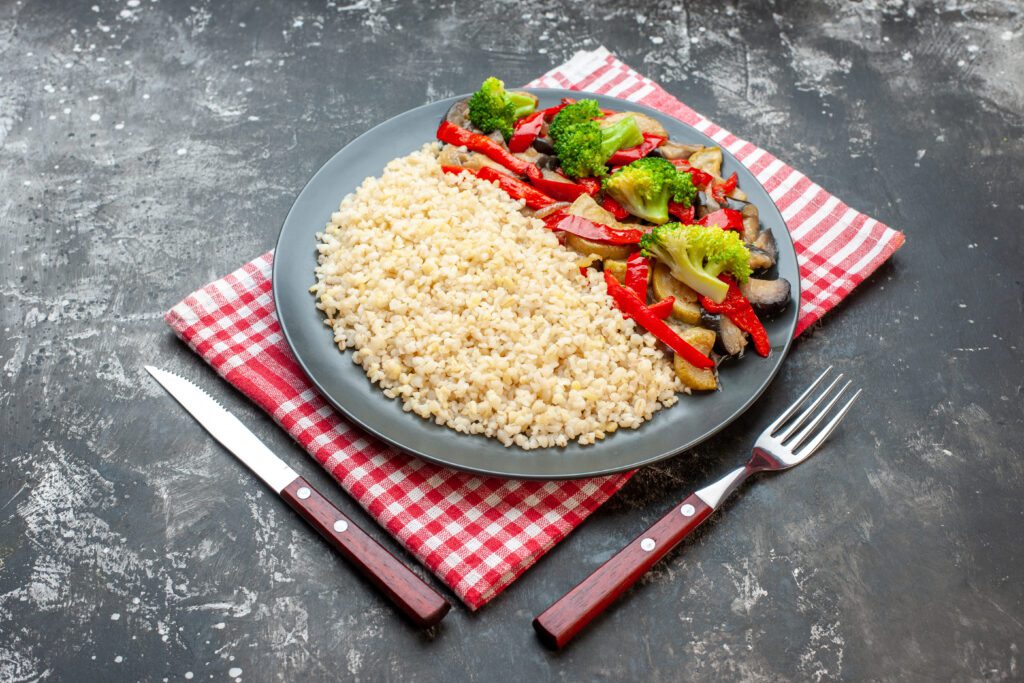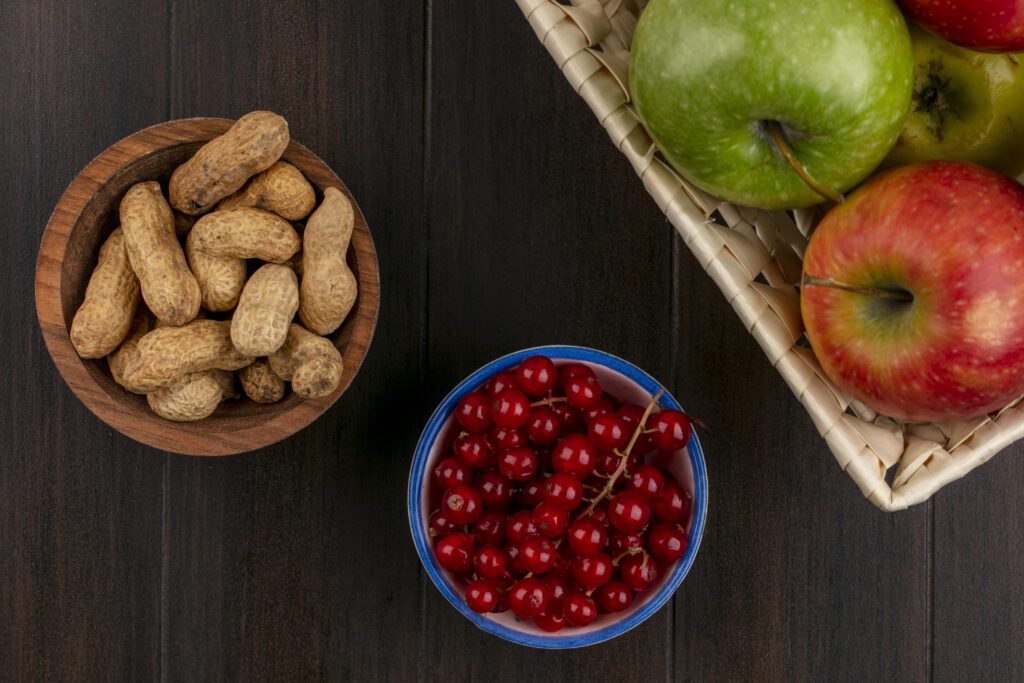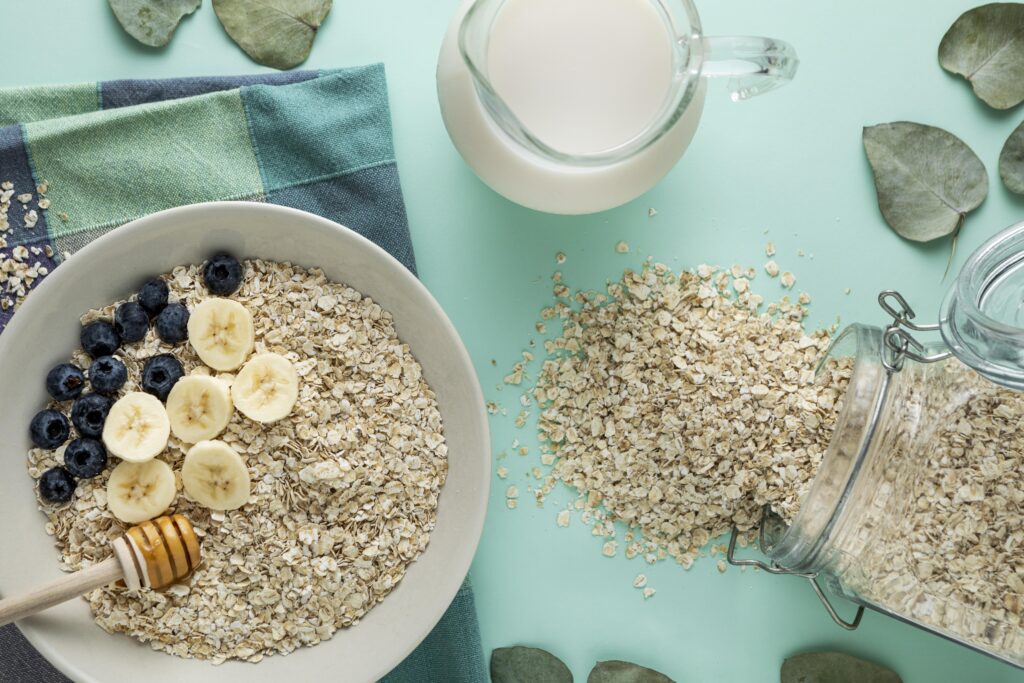We all have heard about fiber – “Eat fiber, your stomach will be fine.” But have you ever thought that fiber and colon cancer can also be connected? In today’s time, colon cancer cases are increasing rapidly, and people are trying to take all kinds of preventive measures. But the truth is that not everything we hear is true.
So this article is for you if you want to know whether there is any connection between fiber and colon cancer or if it is just a myth. Here we will talk based on facts and scientific studies so that you can make your health-related decisions in an informed manner.
Let’s get started and try to find out whether fiber and colon cancer are truly linked and if fiber can reduce the risk of colon cancer or not.
Table of Contents
Understanding Fiber
What is Fiber?
Fiber is a type of carbohydrate found in plants. It is not broken down by the body’s digestive enzymes, so it passes forward intact. It is mainly of two types:
1. Soluble Fiber
- It dissolves in water and forms a gel-like substance.
- Its benefit: It slows down digestion, which keeps blood sugar under control.
- Sources: Oats, lentils, beans, apples, oranges.
2. Insoluble Fiber
- It does not dissolve in water and makes the stool bulky.
- Its benefit: It improves bowel movement, which prevents constipation.
- Sources: Whole grains, nuts, vegetables (like ladyfinger, spinach).
Understanding how fiber and colon cancer are related starts by knowing how fiber works in the digestive system.
Health Benefits of Fiber
Fiber does wonders for the body and some of that works for cancer prevention. There are many studies linking fiber to colon cancer, as it may aid digestion and reduce inflammation (a leading cause of cancer).
- Improving digestion: Fiber makes digestion smooth and prevents constipation.
- Supporting heart health: Soluble fiber reduces cholesterol, which prevents heart diseases.
- Weight control: Fiber-rich foods do not make you feel hungry quickly, which helps in weight management.
- Blood sugar control: Fiber is beneficial for diabetic patients as it keeps blood sugar levels stable.
Common Sources of Fiber
- Whole Grains: Such as brown rice, whole wheat bread, and oats.
- Fruits: Apples, pears, oranges, bananas.
- Vegetables: Broccoli, carrots, spinach.
- Legumes: Rajma, chana, dal.
- Nuts and Seeds: Almonds, chia seeds, flaxseeds.
It is very important to include fiber in your daily diet, but does it also prevent colon cancer? Read further and try to know.
Colon Cancer: A Brief Overview
What is Colon Cancer?
Colon/colorectal cancer refers to a cancer that develops in either the large intestine or the rectum. Cancer occurs when cells that are supposed to cease dividing continue to divide, sometimes indefinitely. It is a severe disease but it can be treated if diagnosed sufficiently soon.
Causes and Risk Factors
There can be many reasons for colon cancer:
- Poor Diet: Low-fiber and high-fat diet increases the risk of colon cancer.
- Genetics: If someone in the family has colon cancer, your risk also increases.
- Lifestyle: Smoking, alcohol, and lack of physical activity increase the risk.
- Age: This cancer is more common in people above 50 years.
Symptoms of Colon Cancer
- Blood in Stool: There is blood in the stool.
- Unexplained Weight Loss: Loss of weight without any reason.
- Abdominal Pain: Pain or cramps in the stomach.
- Change in Bowel Habits: Constipation or frequent diarrhea.
Global Statistics
- Every year 1.9 million people around the world are affected by colon cancer.
- This cancer is the third most common cancer in the world.
- Early detection leads to a survival rate of up to 90%.
The Science Behind Fiber and Colon Cancer
Now the question is, what is the relation of fiber and colon cancer? According to science, the role of fiber is very important in colon cancer prevention.
How Fiber Interacts with the Digestive System
1. Bulking the Stool: Insoluble fiber bulks the stool and helps the body flush out toxins and waste quickly. That lowers the risk for both fiber and colon cancer linked with slow transit.
2. SCFA (Short-Chain Fatty Acids) Production: SCFAs are produced when fiber is fermented by gut bacteria. These SCFAs keep colon cells healthy and reduce inflammation.
3. Reducing Bile Acid Exposure: High-fiber diets reduce exposure to bile acids, which prevents cancerous cell growth.
Scientific Evidence Supporting Fiber’s Role
1. American Journal of Clinical Nutrition Study
- According to research, people who consume 30 grams of fiber daily have a 17% lower risk of colon cancer.
2. World Cancer Research Fund (WCRF)
- According to WCRF report, fiber-rich foods significantly reduce the risk of colon cancer.
Certainly a very clear link is established between fiber and colon cancer, but it is to be noted here that fiber should just be an part of a well rounded life style
Inflammation and Fiber
However, when inflammation gains chronic presence, it causes numerous issues with the digestion system and leads to greater chances of colon cancer cancer as well. Another benefit of fiber is the reduction of inflammation. Fiber is fermented into short-chain fatty acids (SCFAs), like butyrate, in the gut. It is known that butyrate is an energy source for colon cells, has an anti-inflammatory action, and inhibits the proliferation of neoplastic cells.
Case Study:
One study sample of 200 patients was placed on a high-fiber diet. As a result, they saw a 30 percent drop in gut inflammation levels. This proves the fact that keeping in a healthy state the gut makes cancer rare through fiber.
Separating Fact from Fiction
Colon cancer is associated with a lot of misconceptions; so is fiber. Myth Busting Time With Me, Your Host
Myth 1: Eating a lot of fiber prevents colon cancer
Fact: Particularly the consumed fiber itself is a preventive factor, but of course, it will not give you complete security from colon cancer. There are other points like genetics, exercise, smoking, and liquor also play their role.
Myth 2: Fiber supplements are equivalent to natural fiber
Fact: While fiber supplements can be beneficial, the fiber found in fruits, veggies, and whole grains also contains many added health-promoting nutrients, such as vitamins, minerals, and antioxidants. That is more effective and works better as natural fiber gives the upper hand for complete health.
Myth 3: Everyone will benefit from a high-fiber diet
Fact: Excess fiber is undesirable for a few, particularly individuals with stomach-related issues like Irritable Bowel Syndrome (IBS) or Crohn’s Disease. In these instances, the content of fiber should be controlled according to the physician’s recommendations.
Myth 4: Fiber is for constipation only
Fact: Dr. McRae: Fiber can do more than just relieve constipation. It also assists with heart well-being, weight control, and diabetes management. It is also important for the prevention of colon cancer.
Case Studies and Research Insights
Case Study 1: Nurses’ Health Study
• Participants: 88,757 nurses
• Duration: 16 years
• Findings:
- Those who followed a high-fiber diet, the risk of colon cancer was found to be reduced by 20%.
- Particularly, intake of cereal fiber remained in high demand.
Case Study 2: EPIC Study (European Prospective Investigation into Cancer and Nutrition)
• Participants: 500,000 log
• Duration: 12 years
• Findings:
- The risk of colon cancer was significantly reduced in people with a high-fiber diet.
- Fiber-rich diet keeps gut bacteria healthy and reduces inflammation levels.
Scientific Study: According to the 2018 report of the World Cancer Research Fund
WCRF, consuming 30 grams of fiber daily can reduce the risk of colon cancer by 10-17%. This study was based on the analysis of more than 100 researchers.
Practical Ways to Increase Fiber Intake

To fully benefit from the connection between fiber and colon cancer, follow these practical ways to boost your fiber intake:
Daily Fiber Recommendations
- Adults: 25-30 grams of fiber daily.
- Children: 15-20 grams of fiber daily.
Easy Ways to Incorporate More Fiber
1. Eat oats for breakfast:
- Oats are an excellent source of soluble fiber.
- Add fruits like banana or apple to it.
2. Choose whole grains:
- Eat whole wheat bread instead of white bread.
- Use brown rice or quinoa.
3. Eat fruits and vegetables daily:
- Include a salad with every meal.
- Eat fruits and raw vegetables as a snack.
4. Include Legumes and Beans:
- Include lentils, chana, and rajma in your diet.
5. Eat Nuts and Seeds:
- Chia seeds, flaxseeds, and almonds provide fiber.
Sample High-Fiber Meal Plan

1. Breakfast: Oats with banana and chia seeds.
2. Lunch: Whole grain bread with spinach.
3. Snack: Apple and a handful of almonds.
4. Dinner: Brown rice with steamed broccoli.
Challenges and Misconceptions About Fiber Intake
Can Too Much Fiber Be Harmful?
Yes, excessive fiber can cause problems such as:
- Bloating and Gas: Too much fiber can cause bloating or gas.
- Nutrient Absorption Issues: Fiber sometimes slows the absorption of nutrients such as iron, calcium, and zinc.
Fiber Supplements vs. Natural Fiber
- Supplements: Convenient but do not provide the nutrients of natural fiber.
- Natural Fiber: Found in fruits, vegetables, and whole grains and supports overall health.
Lifestyle Factors and Colon Cancer Prevention
Exercise and Physical Activity
- 30 minutes of exercise daily reduces colon cancer risk.
- Walking, jogging, and cycling improve digestion.
Dietary Habits Beyond Fiber
- Avoid processed foods: High-fat and low-fiber foods increase risk.
- Hydration: Drinking water along with fiber is important.
Other Risk-Reducing Strategies
- Quit smoking
- Limit alcohol
- Regular Screenings: Get a regular colonoscopy done after 50.
Conclusion
There is no denying that fiber contributes to the efficacy of colon cancer. However, mere fiber will not be enough – you will need to healthy change your whole lifestyle. Eat along with natural high fiber, work out, and steer clear of bad habits.
FAQs
Is it the fiber, then, that gives protection against colon cancer?
Not fiber is a preventative factor but you will remain healthy if your lifestyle is also good.
How much fiber should I eat per day?
Daily, consume ( 25-30) grams of fiber.
What are the best fiber-rich foods for colon health?
Whole grains such as oats as well as lentils, vegetables, and fruits like apples are good.
Will excessive fiber quantities harm you?
Definitely, too much fiber can lead to bloating and gas.
Will fiber help if my family has a history of colon cancer?
It only means that you have to remember that while fiber lowers the risk of colon cancer, screening at any suspicious time is no less important.









